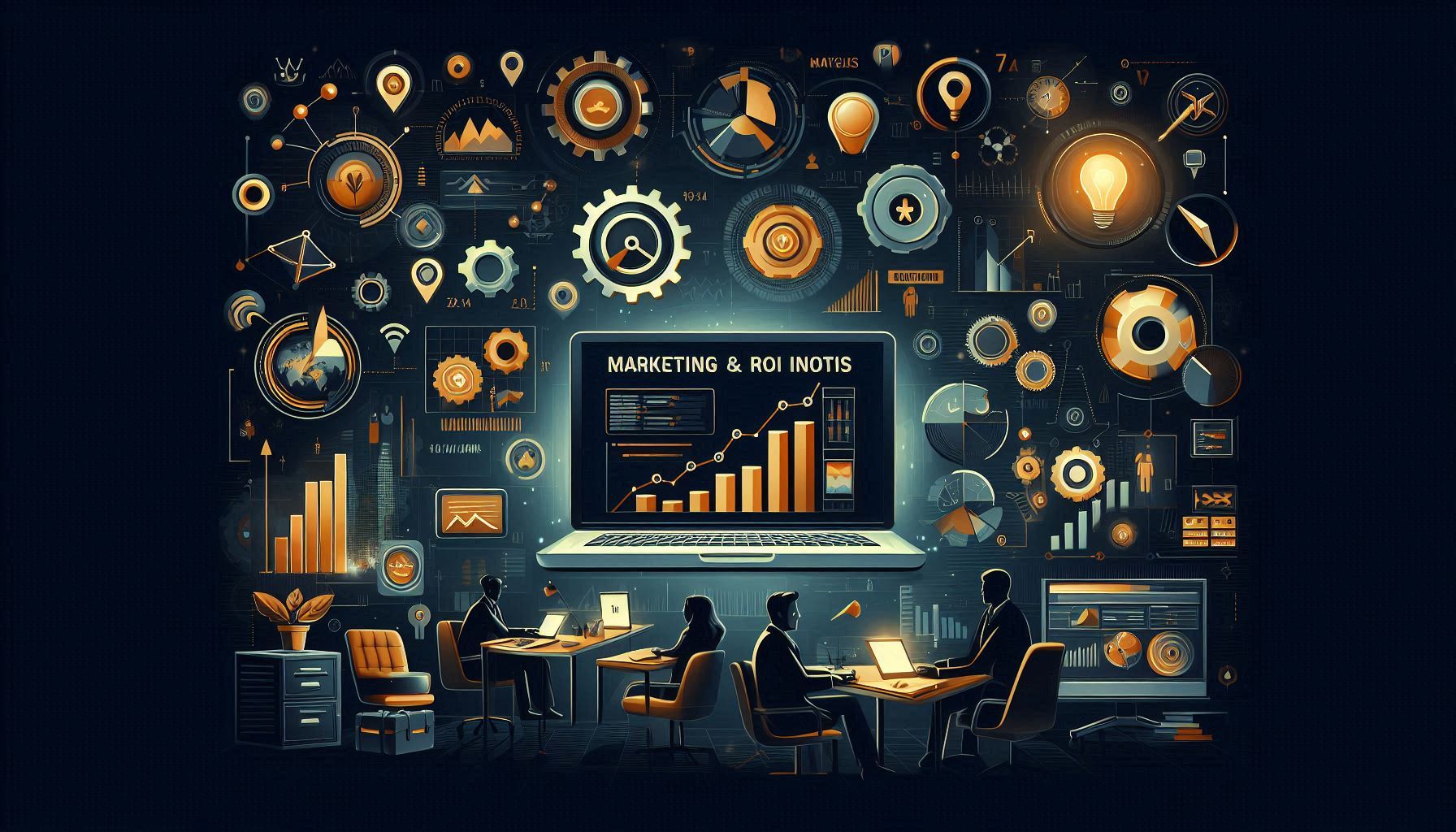Marketing & ROI Analytics
Elevate your code’s power, bolster security, and expedite success with
our cutting-edge DevSecOps Service, fueled by AI innovation.
Marketing & ROI Analytics
Transform your marketing strategy with our AI-powered ROI Analytics Services. Leverage artificial intelligence for data-driven insights that redefine your campaigns, maximizing returns and driving business growth.
Grow Your Business By Understanding Marketing ROI
Return on Investment (ROI) in marketing represents the measurement of profit and revenue growth attributed to marketing strategies and their effectiveness. Evaluating how marketing methods contribute to your company’s growth by quantifying marketing ROI is a fundamental practice. With the incorporation of AI and utilizing AI-powered marketing analytics platforms, you can further enhance your ability to track and analyze the impact of marketing initiatives on ROI, providing deeper insights and data-driven strategies for optimizing your marketing efforts.

“An investment is deemed an investment only through its returns. - On Investment”
Lamine Pearlheart
Why Measure ROI?
Calculating ROI is instrumental in identifying which digital marketing strategies are effective, making informed budget allocation decisions, and evaluating your competitive standing. AI plays a pivotal role in this process, as it empowers you to precisely measure and analyze the impact of your digital marketing efforts. This data-driven approach ensures that you can optimize your strategies and stay competitive in the ever-evolving digital landscape.
How To Measure ROI
[(Number of leads x Lead to customer rate x Average sale price) – Cost for marketing] / Cost for marketing
When integrating AI into your ROI measurement, AI-powered tools can enhance accuracy in tracking leads, optimizing conversion rates, and refining marketing strategies. AI can also provide real-time insights and data analysis, enabling more informed decisions to maximize your ROI.
Challenges With ROI
DevSecOps best practices: seamless integration of security, continuous testing, access control, and proactive threat monitoring, ensuring robust software resilience.
More Questions
Multiple Touchpoints
The customer journey is far from linear; it’s unique for everyone. Customers may interact with your company through various channels, making it challenging to pinpoint which specific marketing effort led to a conversion. However, with the assistance of AI, you can better understand these intricate customer journeys. AI-powered analytics can help you identify touchpoints and assess the contribution of various marketing initiatives to conversions, offering a more nuanced view of customer behavior and marketing effectiveness.
Measuring At The Right Time
The customer journey is far from linear; it’s unique for each individual. Customers may interact with your company through various channels, making it challenging to pinpoint which specific marketing effort led to a conversion. However, with the assistance of AI, you can better understand these intricate customer journeys. AI-powered analytics can help you identify touchpoints and assess the contribution of various marketing initiatives to conversions, offering a more nuanced view of customer behavior and marketing effectiveness.
Influence Level
Not every marketing campaign will have the same effect on your main audience. Some people may see your ad but not feel motivated to do anything, while others may be strongly encouraged to act. When these different reactions occur, it can potentially skew your data and make it more challenging to accurately assess your ROI. By incorporating AI, you can better understand these variations in audience response, allowing for more precise tracking and analysis of campaign impact across different segments and ensuring that your ROI evaluation remains thorough and accurate.
How We Solve Them
DevSecOps best practices: seamless integration of security, continuous testing, access control, and proactive threat monitoring, ensuring robust software resilience.
More Questions
Establish Clear Goals
Marketers must establish precise objectives that define the external elements constituting their ROMOs (Return on Marketing Objective) and the means to measure these distinct factors effectively. Incorporating AI into this process can enhance the precision of goal setting and measurement. AI-driven tools can enable the utilization of advanced metrics like sentiment analysis, predictive analytics, and real-time social media monitoring to gauge brand awareness and customer interactions, offering a more comprehensive and data-driven approach to assessing marketing effectiveness.
Determine Costs
Determining marketing expenses, including creative development, personnel, agency fees, and overhead, among other factors, can aid marketers in formulating precise methods for measuring marketing ROI. By integrating AI, you can enhance the accuracy of these measurements. AI-powered tools can analyze and categorize expenses more efficiently, identify cost-saving opportunities, and provide insights on which key performance indicators (KPIs) should be integrated into ROI calculations for a more data-driven approach to assessing marketing effectiveness.
Leverage A Marketing Analytics Platform
Utilizing appropriate attribution models and marketing measurement strategies is essential for tracking customers across the omnichannel landscape, yielding more comprehensive and detailed insights. The incorporation of AI further enhances this process by providing advanced analytics, predictive modeling, and real-time data analysis, enabling businesses to gain a deeper understanding of customer behavior and make more informed decisions to optimize their marketing efforts.